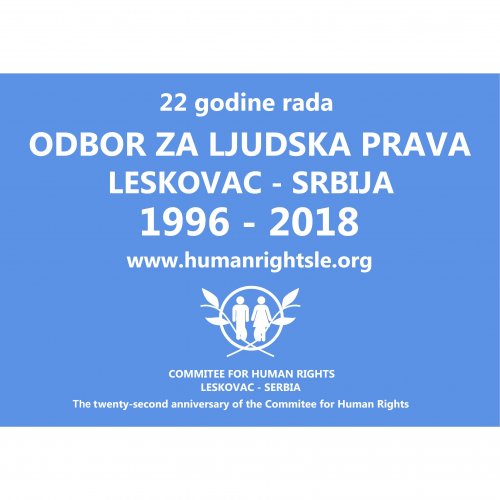
Committee for human rights Leskovac
Leskovac, Serbia
Committee for Human Rights Leskovac – Free Legal Aid & Human Rights Advocacy in Serbia
Committee for Human Rights Leskovac is a non-profit legal organization based in southern Serbia, dedicated to protecting and promoting human rights since 1993. We offer free legal aid, court representation, and psychological support to individuals facing torture, abuse, discrimination, and violations of their fundamental rights, particularly those from marginalized or vulnerable communities.
With over three decades of experience, our team has supported more than 50,000 people in the Jablanica District and beyond. We specialize in cases involving unlawful detention, prison abuse, and constitutional complaints, and we work closely with both national and international partners to push for justice system reforms and greater accountability.
Our mission is to ensure that everyone—regardless of their background—has access to justice, dignity, and fair treatment under the law. Whether we’re advocating for minority rights, supporting victims of police brutality, or challenging systemic legal issues, our work is grounded in a deep commitment to human dignity and the rule of law.
Free • Anonymous • Expert Lawyers
Need Personal Legal Help?
Connect with experienced lawyers in your area for personalized advice on your specific situation.
No obligation to hire. 100% free service.
Practice areas
At the Committee for Human Rights Leskovac, our work in Civil and Human Rights is rooted in decades of advocacy, resistance, and legal support. Formed in response to government repression in the early 1990s, our organization has long stood up for individuals whose basic freedoms were under threat.
We provide legal assistance, public advocacy, and protection of civil liberties—especially in times of political unrest, forced mobilization, or discrimination. During the wars in Croatia and Bosnia, we were one of the first organizations in southern Serbia to offer legal aid and public support to those who refused to participate in armed conflict.
Today, we continue to fight against injustice by defending victims of human rights violations, advocating for peaceful civil resistance, and challenging unlawful state actions. Our work ensures that all individuals, regardless of background or belief, can access justice and stand up for their rights without fear.
Need help with a legal matter?
Reach out to our team for expert legal guidance tailored to your situation.


